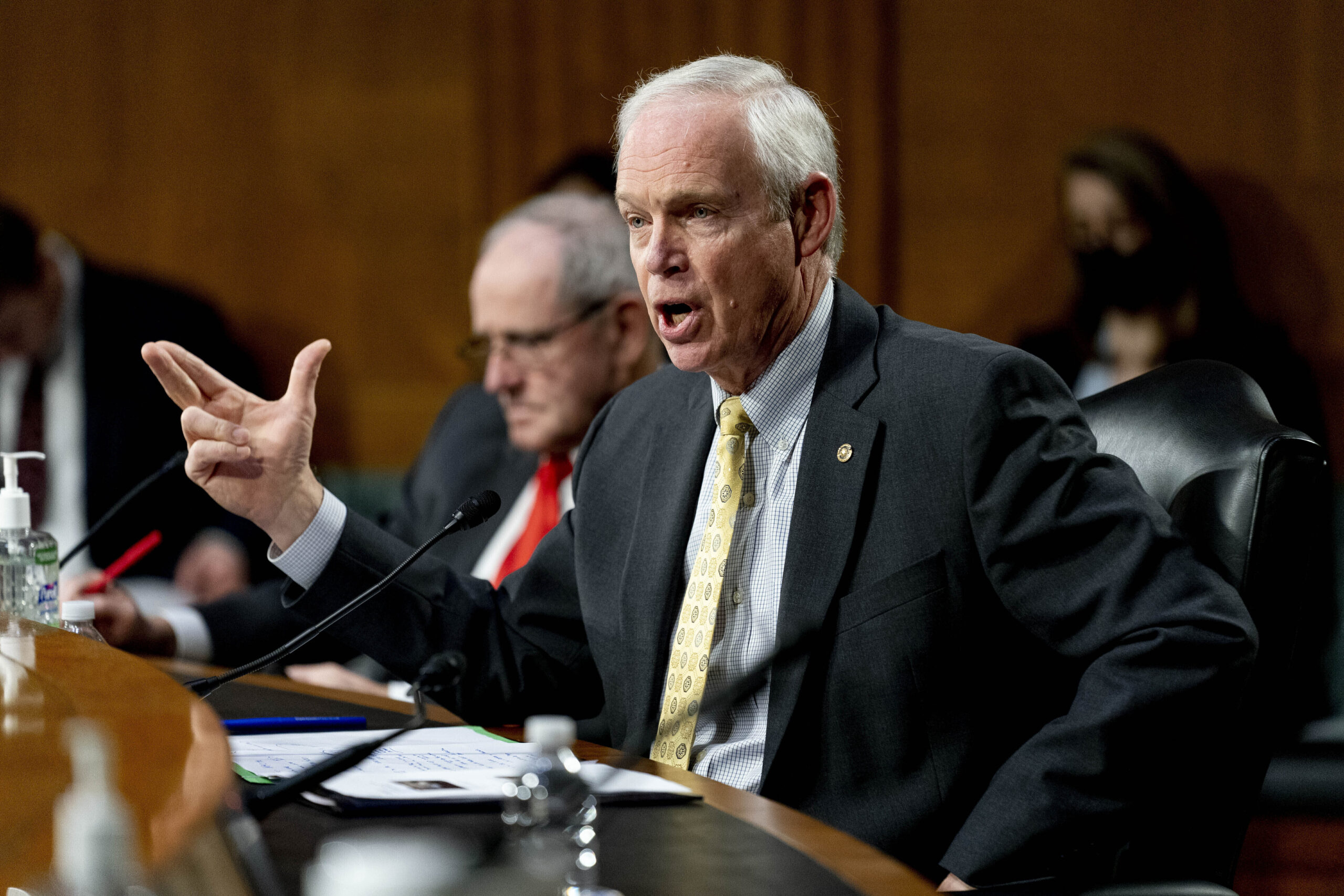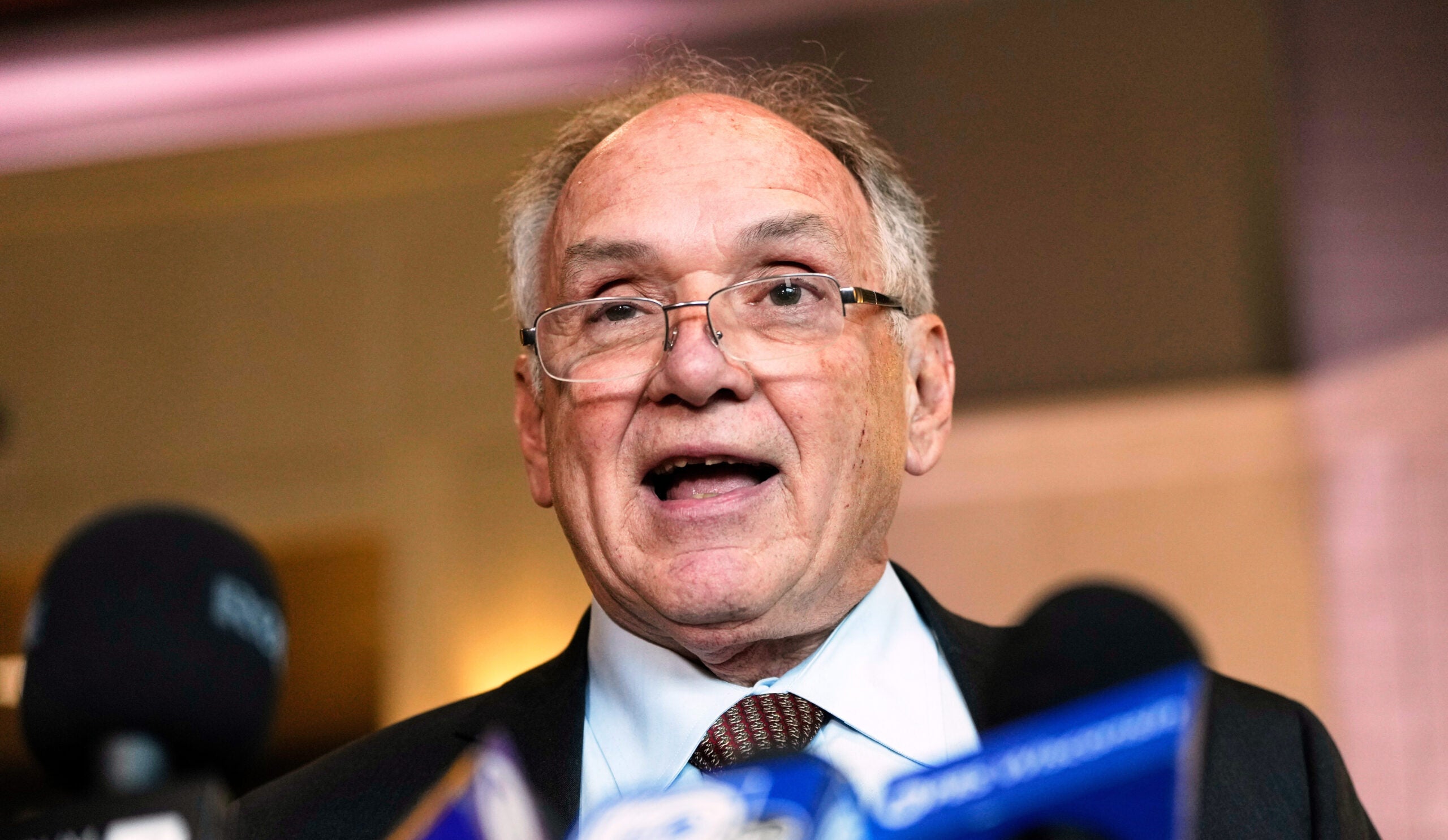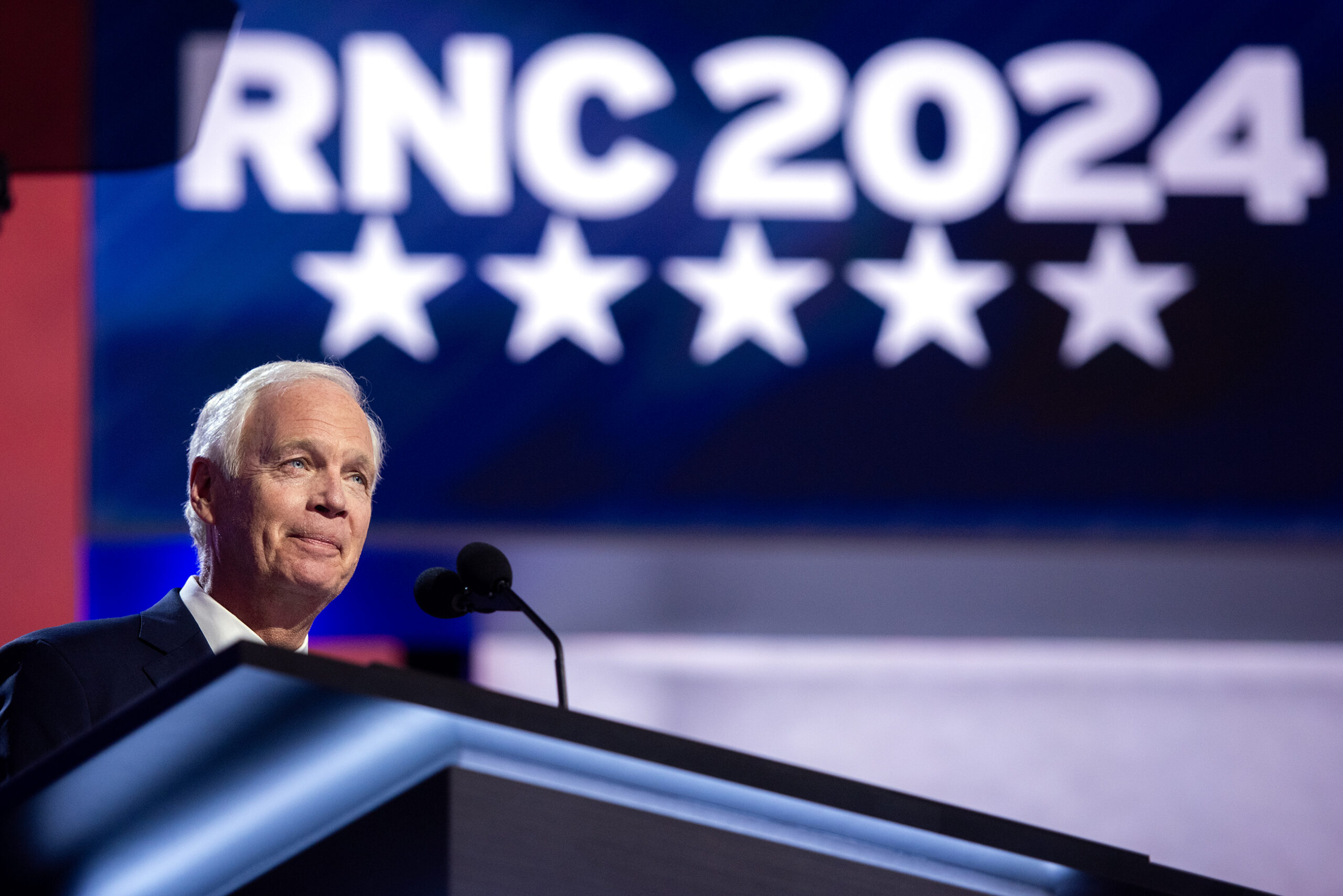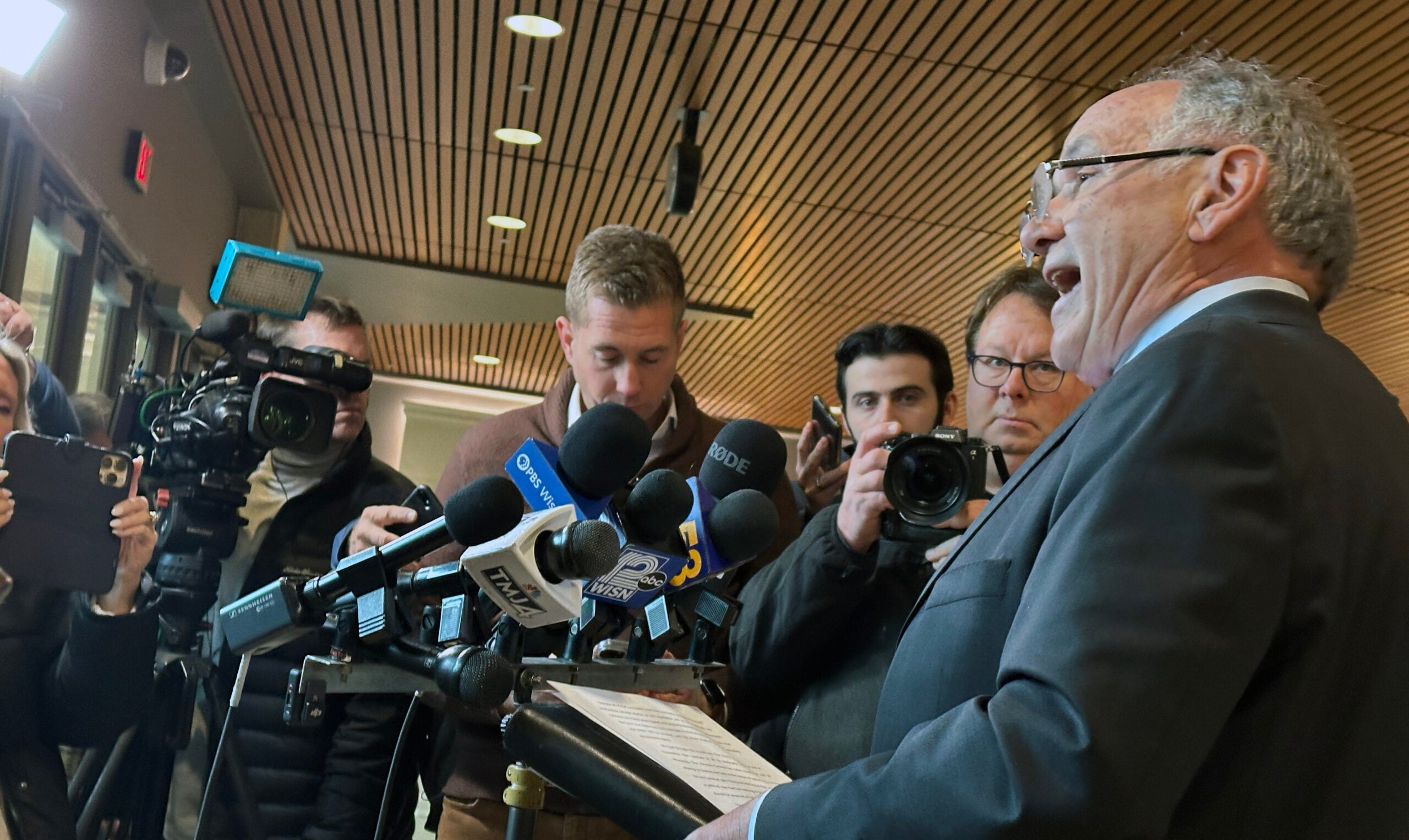A staff member for Republican U.S. Sen. Ron Johnson said the senator wanted to hand-deliver false elector votes from Wisconsin and Michigan to former Vice President Mike Pence on Jan. 6, according to evidence presented Tuesday before the House select committee investigating the Capitol insurrection.
The request from Johnson’s office — rejected by a Pence staff member according to texts highlighted at the hearing — was part of a strategy created by attorneys for former President Donald Trump aimed at sowing doubt about the 2020 election and pressuring Pence to decertify legitimate electoral votes from swing states like Wisconsin. That campaign led to threats against state officials and the insurrection at the U.S. Capitol, committee members argue.
During a Tuesday hearing, members highlighted testimony and documents showing coordinated attempts by Trump attorneys, including former New York Mayor Rudy Guiliani, Jenna Ellis and John Eastman to pressure state officials to block or decertify electoral votes cast for Biden in states like Arizona and Georgia. That pressure continued, according to testimony from one Arizona official, even after attorneys were told repeatedly such a move would not be possible.
News with a little more humanity
WPR’s “Wisconsin Today” newsletter keeps you connected to the state you love without feeling overwhelmed. No paywall. No agenda. No corporate filter.
The committee then focused on what it called a “scheme” to send votes from Republican electors in states like Michigan and Wisconsin to Congress and the National Archives in an attempt to sow confusion during the electoral count on Jan. 6 and convince Pence to delay certification or throw out electoral votes for Biden.
The committee played clips of video testimony from Republican electors, including former Wisconsin Republican Party Chair Andrew Hitt.
Hitt told the committee he and other electors, which include Wisconsin Elections Commission member Bob Spindell, were “simply following the guidance of Wisconsin legal counsel” as Trump campaign lawsuits attempted to convince Wisconsin judges to overturn the election results.
“There was no intent beyond that, and I’m happy to participate in this process to clarify any confusion that may exist,” said Hitt. “I was told that these would only count if a court ruled in our favor. So, that would have been using our electors … Well, it would have been using our electors in ways that we weren’t told about, and we wouldn’t have supported.”
The committee also highlighted exchanges from Republican members of Congress who offered to assist the fake elector strategy. That included a screenshot of a text message exchange from Sean Riley, Johnson’s chief of staff, and Chris Hodgson, an aide for Pence, the day of the Jan. 6 insurrection and certification of Biden’s win.
In it, Riley said “Johnson needs to hand something to VPOTUS.” When Hodgson asked what it was, Riley responded, “Alternate slate of electors for MI and WI because archivist didn’t receive them.”
Hodgson told Riley, “Do not give that to him.”
A spokesman for Johnson responded on Twitter to the testimony Tuesday afternoon, saying, “The senator had no involvement in the creation of an alternate slate of electors and had no foreknowledge that it was going to be delivered to our office. This was a staff to staff exchange. His new Chief of Staff contacted the Vice President’s office,” Alexa Henning stated. “The Vice President’s office said not to give it to him, and we did not. There was no further action taken. End of story.”
Prior to the Jan. 6 attack, Johnson said he planned to join other Republican senators in rejecting electoral ballots in states he claimed were in dispute. He signed on to the objection of Arizona’s electors, but ended up voting to accept them after Trump supporters stormed the capitol.
Democrats running to unseat Johnson in November attacked the Republican senator following Tuesday’s testimony. A statement from candidate and Wisconsin Lt. Gov. Mandela Barnes called on Johnson to resign.
“He literally tried to hand Mike Pence fake ballots,” said Barnes. “Once again, Ron Johnson has proven he’s a danger to our country and our fundamental rights.”
The committee also highlighted testimony showing that Trump called the Republican National Committee and asked them to help coordinate the fake elector strategy despite an email from Trump attorney Eastman indicating that it didn’t matter if the fake electors were approved by state legislatures. “The fact that we have multiple slates of electors demonstrates the uncertainty of either. That should be enough,” Eastman wrote.
On Nov. 18, 2020, Trump’s lead attorney for his campaign in Wisconsin received a memo outlining a plan to use “alternate” electors to contest the election. It was written by Boston attorney Kenneth Chesebro, who later filed a last-ditch appeal with Jim Troupis, the lead attorney for the Trump campaign in Wisconsin, asking the U.S. Supreme Court to overturn Wisconsin’s election results.
“It may seem odd that the electors pledged to Trump and Pence might meet and cast their votes on December 14 even if, at that juncture, the Trump-Pence ticket is behind in the vote count, and no certificate of election has been issued in favor of Trump and Pence,” Chesebro wrote. “However, a fair reading of the federal statutes suggests that this is a reasonable course of action.”
The lawyers and the Trump campaign followed the strategy when 10 Republican electors met at the Wisconsin Capitol to cast votes for Trump on Dec. 14, 2020 despite election results — affirmed by state and federal courts — showing Democrat Joe Biden had won the state.
When Wisconsin’s actual presidential electors were meeting at the Capitol to cast votes for Biden, the ten “alternate” Republican electors met elsewhere in the building to cast votes for Trump.
The 10 Republicans sent signed documents to the president of the U.S. Senate and the National Archives recording the votes.
On Dec. 14, 2020, the day “alternate” electors met at the State Capitol, the Wisconsin Supreme Court rejected a lawsuit filed by Troupis asking for Biden’s victory to be overturned due to previously unsuccessful challenges of a wide range of absentee voters.
On Dec. 29, 2020, Troupis and Chesebro asked the U.S. Supreme Court to overturn the Wisconsin Supreme Court Decision. That request was denied two months later.
In January, The Select Committee to Investigate the January 6th Attack on the United States announced subpoenas of Hitt and Kelly Ruh. Ruh is a Republican activist who was listed as the secretary for Wisconsin’s alternate slate of electors.
Committee Chair Bennie Thompson, D-Mississippi, said in a statement that the panel was seeking information about attempts in multiple states to overturn the election, “including the planning and coordination of efforts to send false slates of electors to the National Archives.”
In March, the Wisconsin Elections Commission voted unanimously to dismiss a complaint that alleged the GOP electors acted illegally when they met to cast votes for Trump. A legal analysis from the Wisconsin Department of Justice indicated the Republicans weren’t trying to fool the U.S. Senate but were trying to preserve Trump’s legal standing as courts were deciding if he or Biden won the 2020 election.
A group of Democrats filed a lawsuit against the Republican electors in May, arguing the actions set the stage for the Jan. 6, 2021 insurrection at the U.S. Capitol and could be replicated in the future if the acts go unpunished. The suit was moved from Dane County Circuit Court to federal court on June 16.
Throughout the select committee’s Tuesday hearing, members presented live and recorded testimony from state lawmakers and election officials who said that after they denied Trump’s request to decertify Biden electors or overturn the 2020 election they were swarmed by Trump supporters who published their addresses and phone numbers online leading to threats of violence and death against them.
Members argued that the multiple pressure campaigns against state officials and Pence directly led to the violence at the U.S. Capitol on Jan. 6 as Trump supporters stormed the building and attacked Capitol police in an attempt to stop Congress from certifying Biden’s win.
Wisconsin Public Radio, © Copyright 2025, Board of Regents of the University of Wisconsin System and Wisconsin Educational Communications Board.





